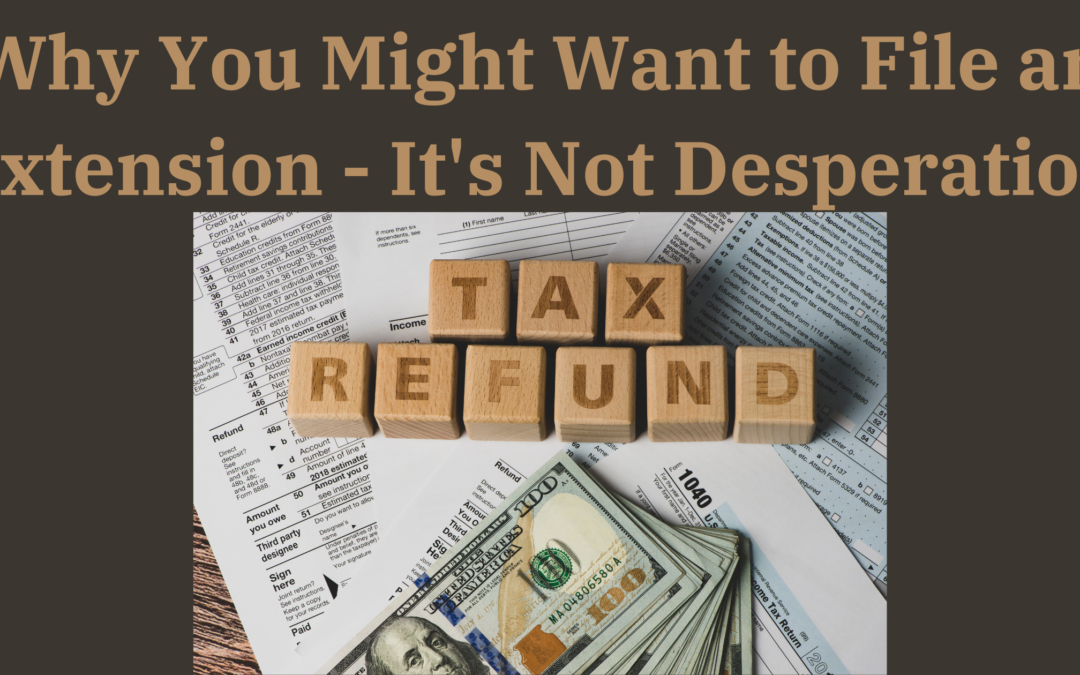As tax season approaches, many taxpayers feel the pressure to file their taxes on time. However, filing for a tax extension could be a smart financial move rather than a sign of desperation. That’s right—contrary to popular belief, asking for more time to file your taxes isn’t always a red flag. It can be a strategic decision that offers numerous benefits.
First and foremost, filing for a tax extension provides you with additional time to ensure that your tax return is accurate and complete. It can be beneficial to allow you to make sure you have all the documents needed to accurately report your income.
For instance, although 1099s and W2s should be sent to you no later than January 31, sometimes they are received late. If you receive a K-1, it can take some time for CPAs to finalize bookkeeping information to determine the amounts to report on these forms. Filing an extension allows you to receive all of these forms in time to accurately submit details.
And if you are an entrepreneur, you may be behind with your bookkeeping. By requesting an extension, you provide yourself the opportunity to thoroughly review your financial documents and, if necessary, seek assistance from tax professionals.
There are also some payments due based on when you file your return. For instance, if you have profit sharing or retirement contributions to pay, their due date is the extension filing date giving you extra time to remit funds.
Additionally, filing for a tax extension doesn’t automatically target you for IRS scrutiny. Contrary to popular belief, the IRS is not inherently suspicious of taxpayers who request extensions. As long as you pay any estimated taxes owed by the original deadline, filing for an extension is a legitimate and widely accepted practice.
It’s also important to recognize that filing for an extension does not exempt you from paying any taxes owed. While the extension grants you more time to submit your tax return, it does not delay the deadline for payment. If you anticipate owing taxes, it’s essential to estimate the amount owed and pay by the original deadline to avoid penalties and interest.
Ultimately, the decision to file for a tax extension should be determined by your circumstances and financial needs. If you require additional time to prepare your tax return accurately or if you’re facing extenuating circumstances that prevent you from meeting the original filing deadline, requesting an extension can be a prudent choice.
In conclusion, filing for a tax extension is not a sign of financial irresponsibility or desperation—it’s a strategic decision that allows you to take control of your tax filing process and ensure compliance with IRS regulations. By understanding the benefits of filing for an extension and approaching the process with diligence and transparency, you can navigate tax season with confidence and peace of mind.
